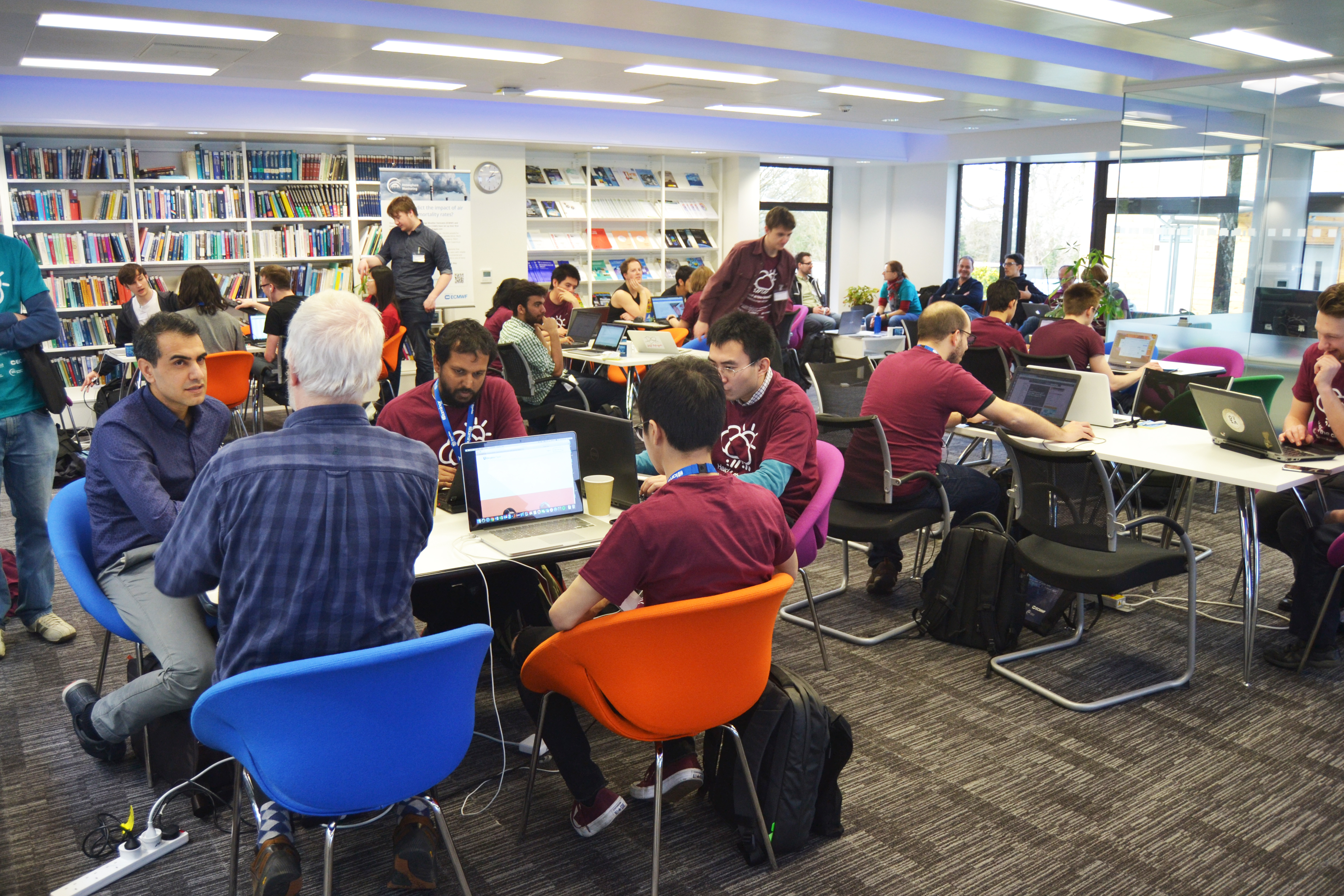Between 28 February and 5 March, ECMWF held a week of events focusing on freely available data from ECMWF activities, including the EU-funded Copernicus Climate Change and Atmosphere Monitoring Services operated by the Centre. The week was scheduled to coincide with International Open Data Day on 4 March 2017, which aims to raise awareness of the importance and benefits of open data.

A series of three events considered open data from different perspectives. A one-day workshop on improving the socio-economic impact of numerical weather prediction (NWP) data was aimed at policy-makers and professionals. It provided a forum to discuss the opportunities and consequences of introducing an open data policy for weather forecast data. The two-day Workshop on Meteorological Operational Systems (MOS) is biennially organised by ECMWF and this year focused on how to serve large volumes of (open) data and how to give users easy access to data. The week finished with a two-day open data hackathon aimed at developers, scientists and data enthusiasts to explore creative uses of data freely available from ECMWF.
Socio-economic impact
The workshop on improving the socio-economic impact of NWP data provided a forum to discuss future challenges in the dissemination of meteorological data. It also explored how ECMWF and national meteorological services can ensure that the private sector can continue to exploit the economic value of weather information. One of the main outcomes was the recognition that the implementation of open data by just publishing vast amounts of data will not automatically bring great benefits. Alongside an open data policy, new solutions have to be implemented to provide innovative data discovery, selection and access systems.
ECMWF is currently working towards a strategy for Data Services and this workshop was part of the exploratory phase, in order to better understand the challenges and costs of providing ECMWF forecast data in the future.
Meteorological Operational Systems (MOS)
The Workshop on Meteorological Operational Systems this year focused on how (open) data can best be brought to users. Increasingly large and complex data sets challenge data centres to look at new technologies and work practices to ensure continuous data uptake and exploitation. This goes beyond the mere provision of data. New strategies for efficient processing and fast visualisation are required. Possible solutions are cloud-based approaches and moving processing/visualisation to where data is stored. Presentations from services around the world showed that the current trend is to bring the processing to where the data is. The volume of data stored in various data centres is simply too large to be moved to users. ECMWF’s MARS archive, for example, is the world’s largest archive of meteorological data and holds around 180 petabytes of data. The traditional exhibition of operational meteorological visualisation systems was also part of the workshop.
#OpenDataHack @ECMWF
Over 70 developers, data wranglers, scientists and data enthusiasts came to #OpenDataHack @ECMWF on 4 and 5 March to explore creative uses of open weather and climate data from ECMWF and the three Copernicus services for Climate Change (C3S), Atmosphere Monitoring (CAMS) and Emergency Management (EMS). Reading Buses and Snowflake Software were two additional open data providers for the #OpenDataHack.
The aim was to raise awareness of freely available data from ECMWF and to have direct contact with users who are interested in working with ECMWF open data. The hackathon was divided into three challenge categories: Get Out, Get Geeky and Get Creative. A panel of six judges, including ECMWF’s Director-General Florence Rabier and Director of Copernicus Services Juan Garces de Marcilla, nominated a winner for each category.
The winner of the Get Out challenge was the HydroNEXT team, who developed a web application that uses river discharge forecast data from the GloFAS project and river flow data from the Copernicus SWICCA project to calculate the projected energy generation of a specific hydro-electrical plant.
The winner of the Get Geeky challenge was the team ‘Reading Buses accident and breakdown prediction’, who developed a machine-learning model that predicts the probability of accidents for buses depending on weather conditions. Besides bus data, the model uses climate reanalysis data, such as total precipitation, snowfall, evaporation and total column ozone.
The Get Creative category had two winners: Team Diversity investigated the impact of weather and climate on animal migration in Kenya, based on a geospatial analysis. The second first place was awarded to team CWS+, which developed a water disease prevention system for Kenya. Based on rainfall predictions, the system predicts the likelihood of diseases, droughts, water shortage problems and floods.
The hackathon had two main outcomes. First, the realisation that meteorological data is challenging to access and to work with, especially for users outside the MetOcean community. Second, the recognition that open weather and climate data is particularly beneficial when combined with other open data sources.
More details on all three events can be found on the ECMWF website: www.ecmwf.int/en/learning/workshops/open-data-week-at-ecmwf.

